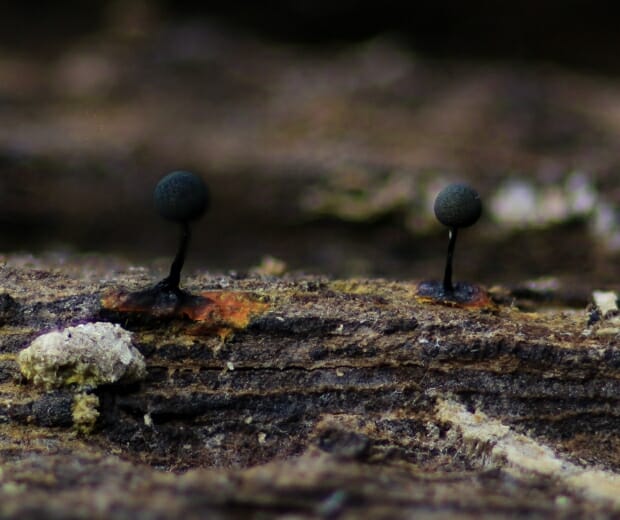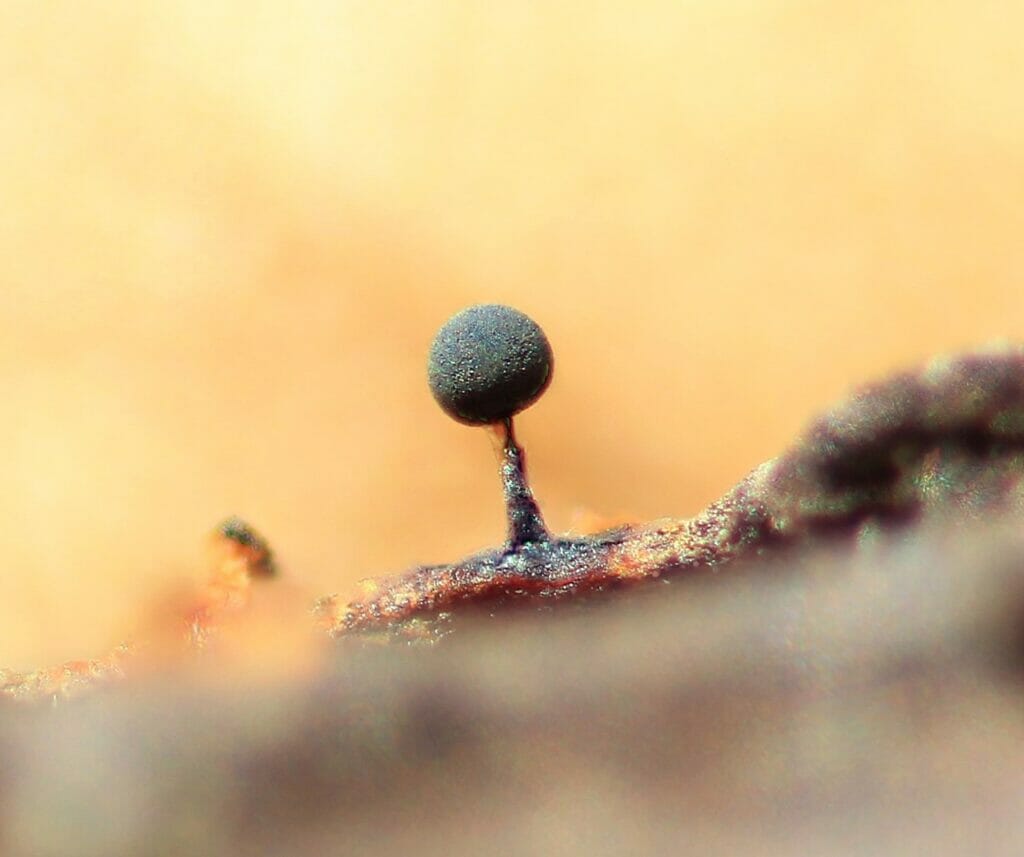We are excited to announce the discovery of an organism new to science, right here in Clyne Woods! It is the only known occurrence of it in the world, so it has been named for its location; Lamproderma clynense. The new find is a type of organism known as a slime mould, or to be correct a Myxomycete. Myxomycetes are extremely robust organisms, essentially a huge single cell with many nuclei. Cut one in half and you end up with two huge single cells with many nuclei. How smart is that?
In one stage of its life cycle (plasmodium), Lamproderma clynense is bright orange. When spreading spores, it’s a dull black. The tricky thing is, it’s only 1.5mm high. We are very lucky to have some brilliant, sharp eyed experts in our locality. It was found by Kevin Lawson and submitted to world expert Professor Bruce Ing, which led to the naming and classification. The ‘slime’ part of the name comes from the way they move in one stage of their lifecycle. If you have any budding naturalists in your family, they might just like using words like ‘cytoplasmic streaming’. Sounds positively sci-fi. Take a walk in the woods and look closely. Zoom lenses (even on a mobile phone) can help bring the detail into focus for us to appreciate their beauty. Learn names if you want to, but most importantly, enjoy!
Kevin’s ‘world first’ discovery in Clyne woods will be published in the next edition of Field Mycology. Lots of information and a stunning collection of photographs – just click on the names in his list of finds. Find more information at Kevin’s site – Clyne Myxomycetes

